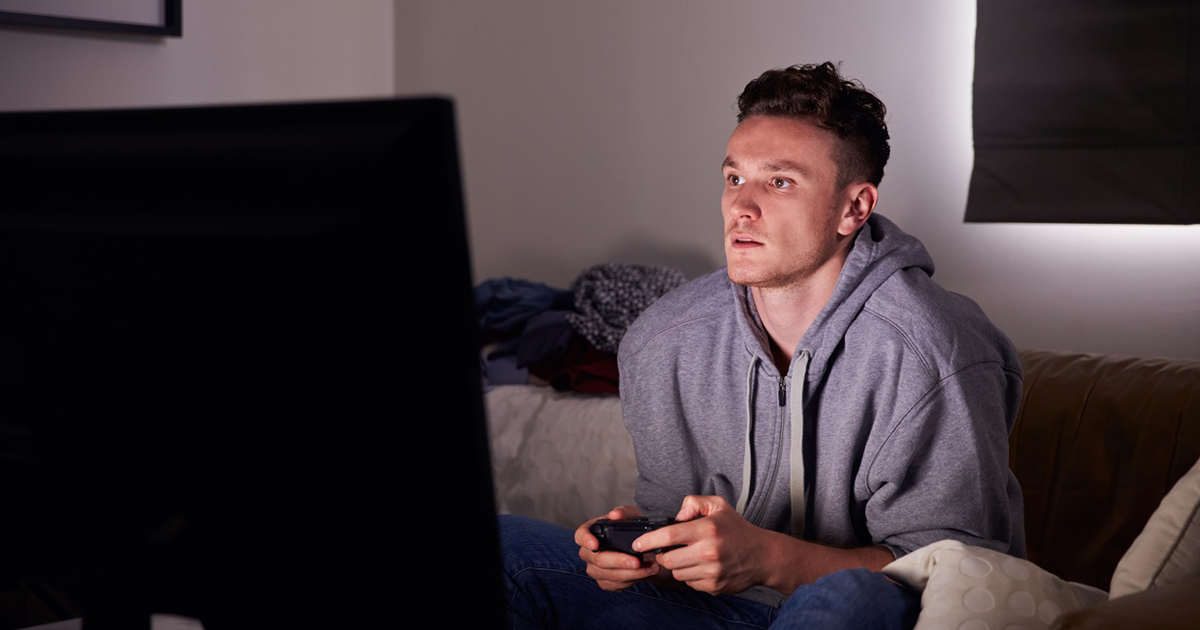We've come a long way since Pong first bounced across television screens on the Atari in 1972.
Today, video games are more immersive and realistic than ever, with infinite online multiplayer options or solo campaigns that can last hundreds of hours.

Those kinds of games were the first that attracted McLaren Greater Lansing Director of Medical Education Anatol Tolchinsky, PhD, LP, to video games when he was young.
"I've been an avid video game player since I started playing with my older brother on a computer when I was 6 years old," said Dr. Tolchinsky. "I was always a huge fan of classic sci-fi movies like Alien and Predator, and video games were a fun way to feel like you were playing in a movie."
Dr. Tolchinsky is an expert in the field of clinical health psychology and problematic video game play (PVGP) and has spent thousands of hours helping people with a variety of mental health needs.
So what exactly is problematic video game play? According to Dr. Tolchinsky it can mean different things to different people.
"I consider problematic video game play a series of behaviors which cause dysfunction in a variety of areas in peoples' lives," said Dr. Tolchinsky. "The dysfunction could be at work, school, family life, etc. From my research and experience, most people do not actually exhibit PVGP patterns."
The signs of PVGP can vary but often include having a difficult time cutting back or stopping play; needing to play increasing amounts of video games to get the same enjoyment; hiding playing behaviors from family, significant others, and friends; and stopping gaming sessions based on in-game goals (i.e., beating a level, attaining an item, or finishing a quest) instead of rigid time limits. It is also a risk factor for PVGP if people are playing the games solely to escape from reality.
If it seems like it's tough to put the controller down, that's because video game developers purposely create games to be an immersive experience, which can cause a sense of time loss for those playing. This can be especially important to watch out for in younger people.
"For anyone who is struggling with mild forms of this issue, setting limits is extremely important," said Dr. Tolchinsky. "It can be as simple as setting an alarm or monitoring playing sessions in the case of children or adolescents. For kids and adolescents, video games should not be used as a babysitter or a cure for boredom; instead, it should be used as a time-limited reward."
In many cases, PVGP can be secondary to a more prominent diagnosis of underlying depression or anxiety. "Typically, when you address the primary diagnosis, peoples' PVGP starts to subside," said Dr. Tolchinsky. "I highly encourage people with severe PVGP to seek therapy, such as cognitive behavioral therapy."
"Typically, improving time-management skills can help address milder forms of PVGP," said Dr. Tolchinsky. "Like most things, moderation is key."